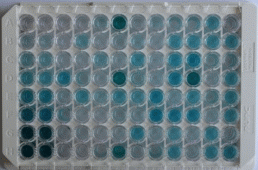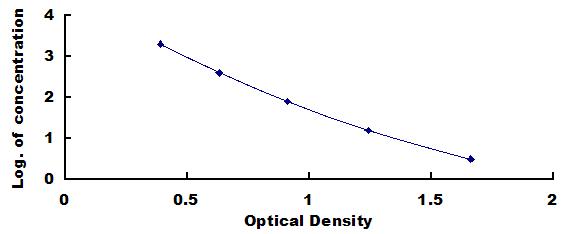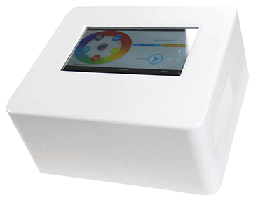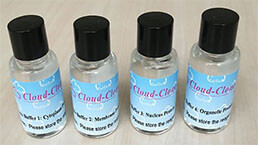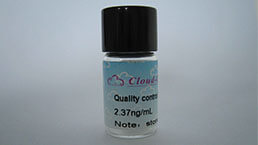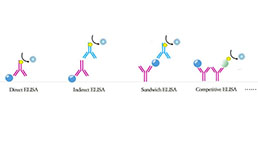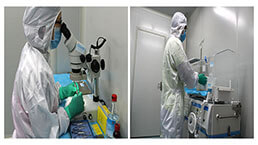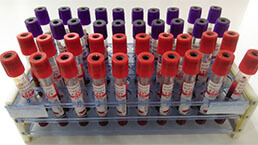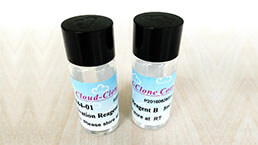Packages (Simulation)

Reagent Preparation

Image (I)
Image (II)
Certificate


ELISA Kit for Relaxin (RLN)
RLXH1; Relaxin H1; Prorelaxin H1
- Product No.CEB216Ca
- Organism SpeciesCanis familiaris; Canine (Dog) Same name, Different species.
- Sample Typeserum, plasma and other biological fluids
- Test MethodCompetitive Inhibition
- Assay Length2h
- Detection Range3.2-2,000pg/mL
- SensitivityThe minimum detectable dose of this kit is typically less than 1.3pg/mL.
- DownloadInstruction Manual
- UOM 48T96T 96T*5 96T*10 96T*100
- FOB
US$ 532
US$ 760
US$ 3420
US$ 6460
US$ 53200
For more details, please contact local distributors!
Specificity
This assay has high sensitivity and excellent specificity for detection of Relaxin (RLN).
No significant cross-reactivity or interference between Relaxin (RLN) and analogues was observed.
Recovery
Matrices listed below were spiked with certain level of recombinant Relaxin (RLN) and the recovery rates were calculated by comparing the measured value to the expected amount of Relaxin (RLN) in samples.
| Matrix | Recovery range (%) | Average(%) |
| serum(n=5) | 87-95 | 91 |
| EDTA plasma(n=5) | 80-89 | 86 |
| heparin plasma(n=5) | 78-90 | 86 |
Precision
Intra-assay Precision (Precision within an assay): 3 samples with low, middle and high level Relaxin (RLN) were tested 20 times on one plate, respectively.
Inter-assay Precision (Precision between assays): 3 samples with low, middle and high level Relaxin (RLN) were tested on 3 different plates, 8 replicates in each plate.
CV(%) = SD/meanX100
Intra-Assay: CV<10%
Inter-Assay: CV<12%
Linearity
The linearity of the kit was assayed by testing samples spiked with appropriate concentration of Relaxin (RLN) and their serial dilutions. The results were demonstrated by the percentage of calculated concentration to the expected.
| Sample | 1:2 | 1:4 | 1:8 | 1:16 |
| serum(n=5) | 98-105% | 83-104% | 89-96% | 90-104% |
| EDTA plasma(n=5) | 80-97% | 79-102% | 88-102% | 78-101% |
| heparin plasma(n=5) | 90-98% | 97-104% | 91-98% | 79-90% |
Stability
The stability of kit is determined by the loss rate of activity. The loss rate of this kit is less than 5% within the expiration date under appropriate storage condition.
To minimize extra influence on the performance, operation procedures and lab conditions, especially room temperature, air humidity, incubator temperature should be strictly controlled. It is also strongly suggested that the whole assay is performed by the same operator from the beginning to the end.
Reagents and materials provided
| Reagents | Quantity | Reagents | Quantity |
| Pre-coated, ready to use 96-well strip plate | 1 | Plate sealer for 96 wells | 4 |
| Standard | 2 | Standard Diluent | 1×20mL |
| Detection Reagent A | 1×120µL | Assay Diluent A | 1×12mL |
| Detection Reagent B | 1×120µL | Assay Diluent B | 1×12mL |
| TMB Substrate | 1×9mL | Stop Solution | 1×6mL |
| Wash Buffer (30 × concentrate) | 1×20mL | Instruction manual | 1 |
Assay procedure summary
1. Prepare all reagents, samples and standards;
2. Add 50µL standard or sample to each well.
And then add 50µL prepared Detection Reagent A immediately.
Shake and mix. Incubate 1 hour at 37°C;
3. Aspirate and wash 3 times;
4. Add 100µL prepared Detection Reagent B. Incubate 30 minutes at 37°C;
5. Aspirate and wash 5 times;
6. Add 90µL Substrate Solution. Incubate 10-20 minutes at 37°C;
7. Add 50µL Stop Solution. Read at 450 nm immediately.
GIVEAWAYS
INCREMENT SERVICES
| Magazine | Citations |
| Reproducao & Climatério | Culture of human granulosa cells with follicular phase phenotype: influence of chemically defined system on morphology, ultrastructure, secretion of steroids and relaxin ScienceDirect: S1413208713000034 |
| BioMed Research International | Upregulation of Relaxin after Experimental Subarachnoid Hemorrhage in Rabbits Pubmed:25133183 |
| Advanced Healthcare Materials | Impact of Hydrogel Elasticity and Adherence on Osteosarcoma Cells and Osteoblasts Pubmed: 30838809 |
| Catalog No. | Related products for research use of Canis familiaris; Canine (Dog) Organism species | Applications (RESEARCH USE ONLY!) |
| CEB216Ca | ELISA Kit for Relaxin (RLN) | Enzyme-linked immunosorbent assay for Antigen Detection. |
| LMB216Ca | Multiplex Assay Kit for Relaxin (RLN) ,etc. by FLIA (Flow Luminescence Immunoassay) | FLIA Kit for Antigen Detection. |

